the art of doing nothing: the secrets of the pythian priestesses
what the oracles of delphi can teach us about "self-sight"
Who would I be if I’d grown up in a different time?
What if I hadn’t experienced most of my most important years of psychological development swimming in a chronically-online culture fueled by force-fed expectations and ideas of never-ending progress, perfection and power?
What would my human experience be like without this programming?
How would its absence change the shaming, critical nature of my inner narrator?
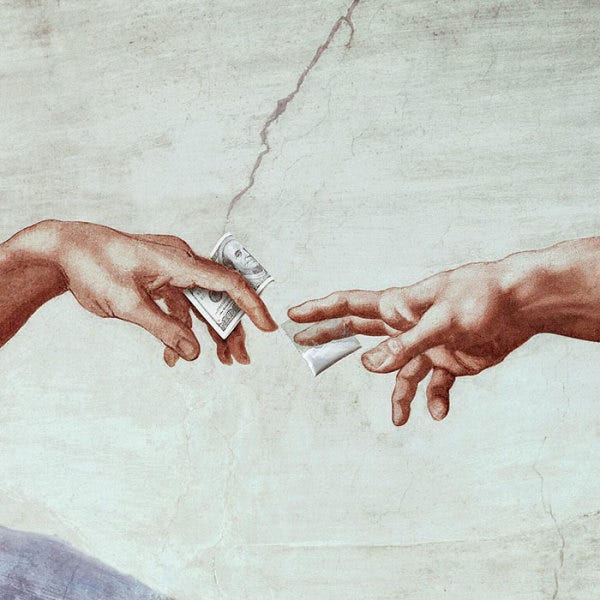
the big questions
When we start out on the path toward expanding our levels of self-awareness, we naturally begin reflecting on early moments in our lives when we were faced with the universal questions about being.
Questions about time, the universe, nature, God, religion and death.
Contemplating these concepts as an adult in the beginning of a healing journey will ask you to acknowledge a painful realization head-on: that you had no one to guide you during these moments of existential panic, fear and wonder.
You likely wrestled with these feelings alone. Maybe you still do.
What typically hits next is the bitter awareness that pondering these questions should have been encouraged (and facilitated by) teachers and parents.
You might end up wondering why it wasn’t, and who you’d be now if it had been.
Why (after centuries of seeing how poor a decision it is) do most people continue to live their lives without a shred of self-reflection?
psyche as a portal to inner truth
We (myself included) tend to spend a lot of time thinking about fixing what’s wrong “out there,” and much less time becoming familiar with the maze of on our own darkness.
From the perspective of depth psychology, the psyche is a dynamic force. A vast inner reservoir containing each and every experience, memory, and emotion across an entire lifetime.
Our dreams hold this wisdom and act as symbolic whispers from the psyche, attempting to guide and inform us. To occasionally offer us a hand or an olive branch, that we all too often fail to reach out for.
If we dare to explore and face our dream symbols, we can begin to gain access to the healing power of our inner world.
Our current cultural milieu places zero emphasis on the (very real) dance between the conscious and unconscious forces that shape the human experience.
I’ve been thinking about this a lot lately:
Who exactly does it serve when we collectively neglect to engage in deep self-reflection and introspection?
Lack of awareness of our shadows (unconscious aspects of ourselves) doesn't make them disappear; on the contrary, they can become even more all-consuming, despite not being consciously acknowledged.
It’s like painting over mold. It just doesn’t work. It’ll come back even worse next time.
psychology daddies on the breath of life
In psychology, thinkers such as Sigmund Freud, Carl Jung, and others (I call them “psychology daddies” bc why not) have explored the depths of the unconscious and its influence on our thoughts, emotions, and behaviors.
Freud, for example, developed the theory of the unconscious mind and proposed that it contains thoughts, memories, and desires that are not currently in conscious awareness but still influence our actions.
Jung expanded on this idea and introduced the concept of the collective unconscious, suggesting that there are universal symbols and archetypes that shape human experiences across cultures.
These ideas have left a lasting impact on psychology and have influenced many an academic discussion about the mind and human behavior.
Here’s the problem: most people learn absolutely nothing about the collective or individual unconscious at home, in school, or through the endless amount of media and programming noise thrown at them from every possible direction at all times.
The psyche is your hidden inner essence, an internal flame nestled deep within, poised to guide you through the intricate maze of the unconscious. A secret flame that exists to invite you into moments of introspection, deeper self-awareness, self-discovery, and integration.
Did you learn about the psyche as a child?
How would this wisdom have shaped the way you moved through the world and the person you’ve grown up to be? Would it change the way you treated yourself and other people?
following the thread of self-knowledge
The phrase "know thyself" is attributed to ancient Greek philosophy and is notably associated with the Temple of Apollo at Delphi. The high priestess of this temple was the Pythia, also known as the Oracle of Delphi, the most prestigious and authoritative oracle in ancient Greece.
The Oracle of Delphi was not a single person but rather a title given to the woman who that held the role at the time. The identity of the Pythia changed over time as new priestesses took on the role.
The ancient Greeks believed that the god Apollo would use the Pythia as a channel to share divine prophecies and guidance.
Apollo is considered one of the twelve Olympian gods and is associated with a wide range of aspects, including music, poetry, prophecy, healing, archery, and the Sun.
As I was reflecting this week on my own path toward greater self knowledge and how my own psyche has been shaped and molded by the current collective, I found myself down another of my Alice-in-Wonderland-style research rabbit holes.
For some reason, I felt compelled to learn more about these mysterious women who held the title of Oracle of Delphi, also known as Pythias or Pythian priestesses.
What could we learn from them?
Disclaimer: What I’m sharing is based upon what I found in my own manic research of the interwebs. We’re all just working with the threads history has left behind, which tend to be shrouded in a lot of baggage. I try to keep that in mind whenever approaching these topics, especially when it comes to ancient texts written mainly by selective male historians from very specific perspectives. But that’s a whole other Substack piece, my friend. 🫠
how to pick an oracle
The Pythias were young women from the local area chosen to serve as priestesses of the temple. The rituals and practices surrounding the Oracle of Delphi were shrouded in mystery, and much of what we know is based on historical accounts, myths, and archaeological findings.
The criteria for selecting a high priestess to fill the role of the Oracle of Delphi were likely a combination of aspects. The selection process apparently took into account things like moral character, purity, and (prepare to cringe) “a lack of personal blemishes”.
But before I tossed the whole thing into the trashcan in reactionary rage, I reminded myself of how much is lost in translation with these ancient texts. Perhaps 'personal blemishes' could allude to something more than a perfect face or body?
While beauty played a role in the equation, it wasn't the sole or even the most crucial factor in choosing the Oracle of Delphi.
The selection process also took into account inner “blemishes.”
Pythias were likely required to adhere to a set of ethical standards, avoiding behaviors that could be considered morally questionable. This emphasis on moral purity was in line with the belief that individuals with high moral character were more likely to be conduits for divine messages and much less susceptible to corruption.
The idea was that those with outstanding moral character were more likely to receive and convey the messages of the gods accurately.
This makes sense. Would you want the person you’re going to for prophetic wisdom to be influenced by money or unresolved and repressed psychological trauma?
It will also be unsurprising to discover that a heightened spiritual sensitivity or receptivity to divine messages (intuitive faculties) were qualities sought after in the selection process.
In the ancient Greek worldview, physical and moral aspects were often intertwined, and concepts like “purity” and “blemishes” extended to both the outward appearance and the inner character of individuals.
The selection process for the Pythias aimed to identify priestesses who embodied a harmonious combination of physical and moral qualities, aligning them with the sacred nature of their role as intermediaries between the human and divine realms.
The role of the Pythia involved entering a trance-like state, often induced by inhaling vapors rising from a chasm in the temple. This chasm, called the "chasmos," was believed to be a direct connection to the underworld. While the exact nature of the vapors is still debated, some theories suggest they may have contained ethylene, a sweet-smelling gas with mild psychoactive effects.
“So.. the Pythian priestesses were basically evil witches summoning dark demonic forces?”
Not so fast.
It's important to interpret these things within the cultural and religious context of ancient Greece, rather than immediately applying our contemporary notions of demonic/evil/witchcraft.
The Pythia's trancelike state was part of a religious ritual believed to facilitate communication with Apollo. It wasn't an act of summoning demons but rather a means of seeking guidance from the realm of the gods (the archetypal unconscious).
Also, Apollo is basically the least demonic of the greek pantheon. Does he have a punitive and vengeful side? Yup. (Sorry, Marsyas). But how is he so different from the God in the Old Testament? Dude was harsh.
the underworld gets a bad rap
In ancient Greek religion, the concept of the underworld was not necessarily synonymous with “demons” or “witchcraft”, it was instead linked to the domain of the dead, overseen by deities (supernatural beings) such as Hades and Persephone.
Collectively, we've been encouraged to label anything associated with the underworld as 'demonic' or 'witchcraft,' aiming to sever our connection to the rich soil of the unconscious. Yet, it is within the fertile ground of our shadows that we discover access to our inner knowing.
The majority of people worldwide, particularly in the West, have had their connection to intuitive faculties wholly severed. Some might argue this severing was intentional.
This separation doesn't usually occur abruptly; it's a gradual process. Bit by bit, over the course of childhood and young adulthood, we lose pieces of ourselves until all that remains is what feels like an empty husk.
The Pythia’s connection to the underworld was symbolic, suggesting a direct link to the divine and the mysteries of life, death, and fate.
Paris Hilton was recently quoted in an interview about her feelings around becoming a mother for the second time and her decision to use another surrogate:
“I'm just so scared… childbirth and death are the two things that scare me more than anything in the world."
How many of us can say we have actively confronted the big - and completely unavoidable - mysteries of human existence?
Life. Death. Fate.
Very few of us do. These concepts are too big. The lack of control is terrifying. What are we supposed to do about any of it?
I’m all for everyone making the choice that’s right for them when it comes to parenthood. However, sidestepping the pains of childbirth through surrogacy doesn't exactly help one confront the existential fear that underlies the avoidance of facing these mysteries directly.
Instead, we choose to suppress, repress, cling, grasp and control until our stories end.
Maybe we don’t have to do anything.
Maybe doing things is exactly what we’re not supposed to be doing.
Perhaps the secret of the Pythias is to master the art of doing nothing.
It is only in these moments, often fleeting, that one can become a clear channel, contemplating a shimmering glimpse of the profound mysteries and mythopoetic connections shared by all beings.
The transformative power of these brief moments can cleanse lifetimes of self-abuse. It’s hard to understand unless you’ve experienced this kind of ecstatic state of grace and surrender first-hand.
Another lesson from the Pythian priestesses: say less and trust your truth.
During her trance, the Pythia would utter cryptic and ambiguous prophecies in response to questions posed by visitors. These prophecies were then interpreted by other priests and priestesses of the temple.
The ambiguity of the Oracle's responses allowed for diverse interpretations and often led to a blending of myth, religion, and political advice.
The Pythian priestesses held immense influence in ancient Greek society. Kings, generals, and ordinary individuals sought their guidance on matters ranging from personal issues to state affairs.
How often do we shuffle between various personality masks, filtering our true nature while jumping through conversational hoops in a desperate bid to please others we deem to be “above” or “better than” us, rather than asking for exactly what we need? Rather than telling them how we truly feel.
I emerged from my research rabbit hole really reflecting upon and contemplating the gravity of the power of the Pythian priestesses.
These women were consulted for some of the most important decisions in ancient antiquity. Their prophesies were considered deeply sacred. It’s no wonder why they continue to fascinate and mystify historical narratives.
The words found engraved in the stone at the entrance to the temple of Apollo in Delphi where the Pythian priestesses served?
“Know Thyself.”
The message was meant to urge all visitors to reflect on the importance of self-awareness and self-knowledge.
“Know Thyself” is often linked to Apollo's guidance. We don’t have any historically-proven textual documents from the God himself, so the specific authorship is commonly credited to ancient Greek philosopher Socrates.
One of the notable instances of themes of self-knowledge is in Socrates’ (also very famous) student Plato's "Phaedrus," where he emphasizes the importance of an inner awareness of the powerful universal call for introspection and understanding our true nature as human beings.
There is some beef among scholars and translators (I would pay to watch these intellectual cat fights) about the nuances of the translation of the ancient greek phrase which has been attributed to “Know Thyself.”
In its original form, it looks like this: "γνῶθι σεαυτόν" (gnōthi seauton).
Some of these academics argue that a more accurate and nuanced translation could be “see thyself” or “examine thyself.”
The ancient Greek word "γνῶθι" (gnōthi) can involve not only intellectual knowing but also a deeper, experiential understanding or self-awareness.
The idea being not just to accumulate knowledge about oneself but to truly see or perceive one's own nature, motivations, and inner workings.
This untapped connection to “inner sight” was what the ancient Greeks believed that their Pythian priestesses had perfected, hence why they so deeply trusted and sought their wisdom.
The idea of “self sight” rather than “self-knowledge” suggests a more profound and co-creative engagement with our identity and consciousness.
Instead of a mere intellectual exercise; it emphasizes a kind of introspective, reflective awareness. A deeper, experiential understanding of one’s own being.
Here’s my hot take:
After almost three years of research into depth psychology, mysticism, philosophy, and decades of lived experience (learning lessons the hardest way possible and sabotaging myself into oblivion), it seems to me that what we view as “mental illness” is rooted in various forms of personality splits and emotional constipation. Our “symptoms” are there to alert us to a lack of integration, wholeness, and continuity of being.
Psychological suffering occurs when we’re out of alignment with inner Pythian priestess.
In his book, The Road Less Traveled, American psychiatrist M. Scott Peck wrote:
“…depressive symptoms are a sign to the suffering individual that all is not right with him or her and major adjustments need to be made. The unpleasant symptoms of mental illness serve to notify people that they have taken the wrong path, that their spirits are not growing and are in grave jeopardy.”
Entropy, in psychological terms, often refers to the tendency of the unconscious mind to move toward either chaos or disintegration. Self-knowledge (and self-sight) involve a conscious effort to resist our natural tendency as humans toward entropy of the psyche.
Simply put, this means we must face uncomfortable truths about ourselves, take responsibility for our own actions, and engage in an active and ongoing process of personal spiritual development (self-sight.)
Entropy of the psyche through a lack of self-sight encourages stagnation, degradation, and can lead to dissociative states of unawareness and emotional dis-order.
Entropy prevents exactly what is needed to lead us out of the darkness: growth.
In order to change the world we have to develop the courage to grow. To accept our own role in actively working against the natural tendency toward disorder and chaos in the human psyche.
Achieving this requires the capacity for self-sight.
If there is so much to be gained by this ability, why do so many avoid looking in the dark corners of their psyche?
The answer?
Fear.
We’re all afraid. Growth and change scare us because of what their achievement requires of us. The mountain of trauma and toxic shame feels insurmountable. You are not alone in this feeling.
The most radical thing we can do right now is to bravely walk into depths of the unconscious to blow out our own inner cobwebs.
Instead of looking outside for problems to fix, perhaps the more urgent matter is closer to home.
In the words of C.S. Lewis:
“When the whole world is running towards a cliff, he who is running in the opposite direction appears to have lost his mind.”
Let us all run towards self-sight.
Tell me whence comes it that thou measurest the Universe and the limits of the Earth, thou who bearest a little body made of a little earth? Count thyself first and know thyself, and then shalt thou count this infinite Earth. And if thou canst not reckon thy body’s little store of clay, how canst thou know the measures of the immeasurable?
- Palladas (4th Century AD poet based in Alexandria, Egypt)
and now, for the links…
In each of my posts, I provide additional resources for my paid readers (book recs, podcast episodes, YouTube videos, etc.) that are providing insight and fuel for growth in my own recovery journey.
If you’d like to upgrade to a paid subscription, click the button below and sign up for just $5/month. Paid subs also unlock access to my private Discord community.
After upgrading, simply email your payment confirmation to help@backfromtheborderline.com for your unique access link.
Dive into more of my work + check out my sponsors:
◘ Listen to Back from the Borderline
◘ Listen to Night Night Bitch (my second esoteric bedtime story podcast)
◘ Follow me on Instagram
◘ Become certified in Dream Tending and Deep Imagination work with previous BFTB guest Stephen Aizenstat, Ph.D. (this is a course I’m currently taking myself)
◘ Get 10% off courses at JungPlatform with code mollie10 (affiliate link)
◘ Get 15% off your first order from PureSpectrum CBD with code BFTB (affiliate link)
Alright, let’s get into it.
[unpaid readers won’t see anything beyond this point.]
sh*t that has me spellbound
Now that it’s just you and me, here’s what I’ve been binging/learning about this month.
Save a few that sound interesting to you and enjoy them throughout the month until the next post. You know the drill. Take what resonates with you and leave the rest.
Ready for your prezzies?
◘ The Oracle of Delphi - History Channel Documentary [YouTube]
◘ Spirituality and Religion The One and the Many [YouTube]
◘ Rainy day in the Greenhouse Cottage Core Aesthetic ASMR Ambience [YouTube]
◘ André 3000 Talks His New Album and Life After Outkast [YouTube]
◘ UFOs, Consciousness, & Nonhuman Intelligence w/ Anthony Peake
◘ How to Escape Mediocrity and Mental Illness - The Road Less Traveled [YouTube]
◘ BJ Investigates (her insane research prowess is IMPRESSIVE) [YouTube]
◘Escaping The Shackles of Psychiatry: What I’ve Seen and Survived, as Both Doctor and Patient [article via Mad in America]
◘ Justin Garson (a previous BFTB guest and a good one to follow on X - he posts consistently on the themes of madness and critical psychiatry)
◘ Gen Z 'Can’t Read' And Millennials Won’t Let It Go (I had no idea this was a thing - it might not be a thing, but I watched it and found it fascinating) [YouTube]
◘ What I’m currently reading: “The Chalice and the Blade” by Riane Eisler.
◘ What I’m currently watching: Vikings (I’m on the final season and I want to cry) after recently finishing The Last Kingdom . Zaz and I are very much into these vibes right now and are planning on watching Barbarians next.
That’s it for this time, my friend. Plan on spending this next month tuned into your inner Delphic Oracle.
𓆩ᥫ᭡𓆪 Molls

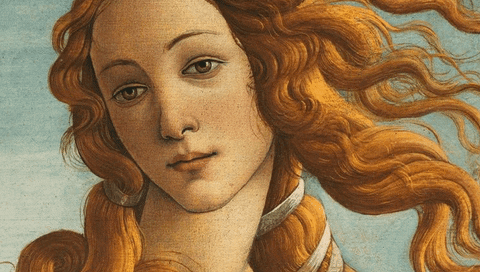



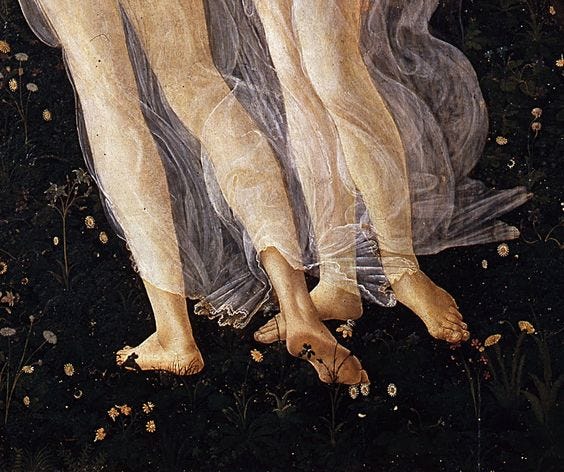





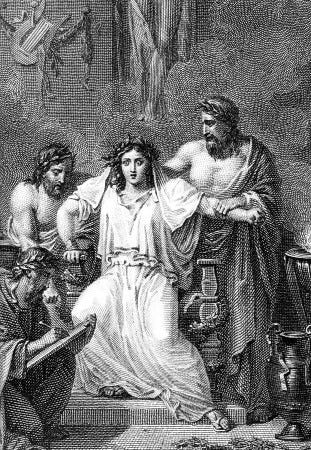
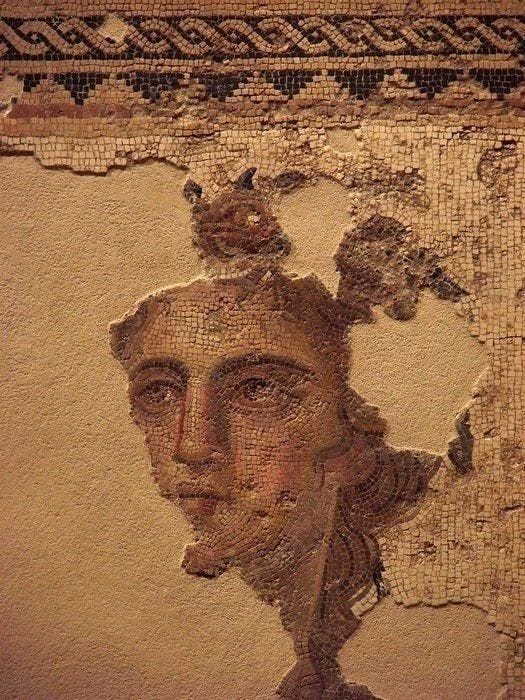
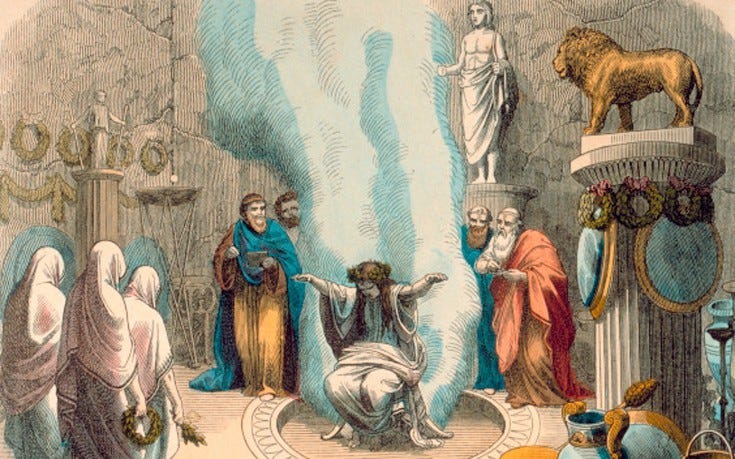
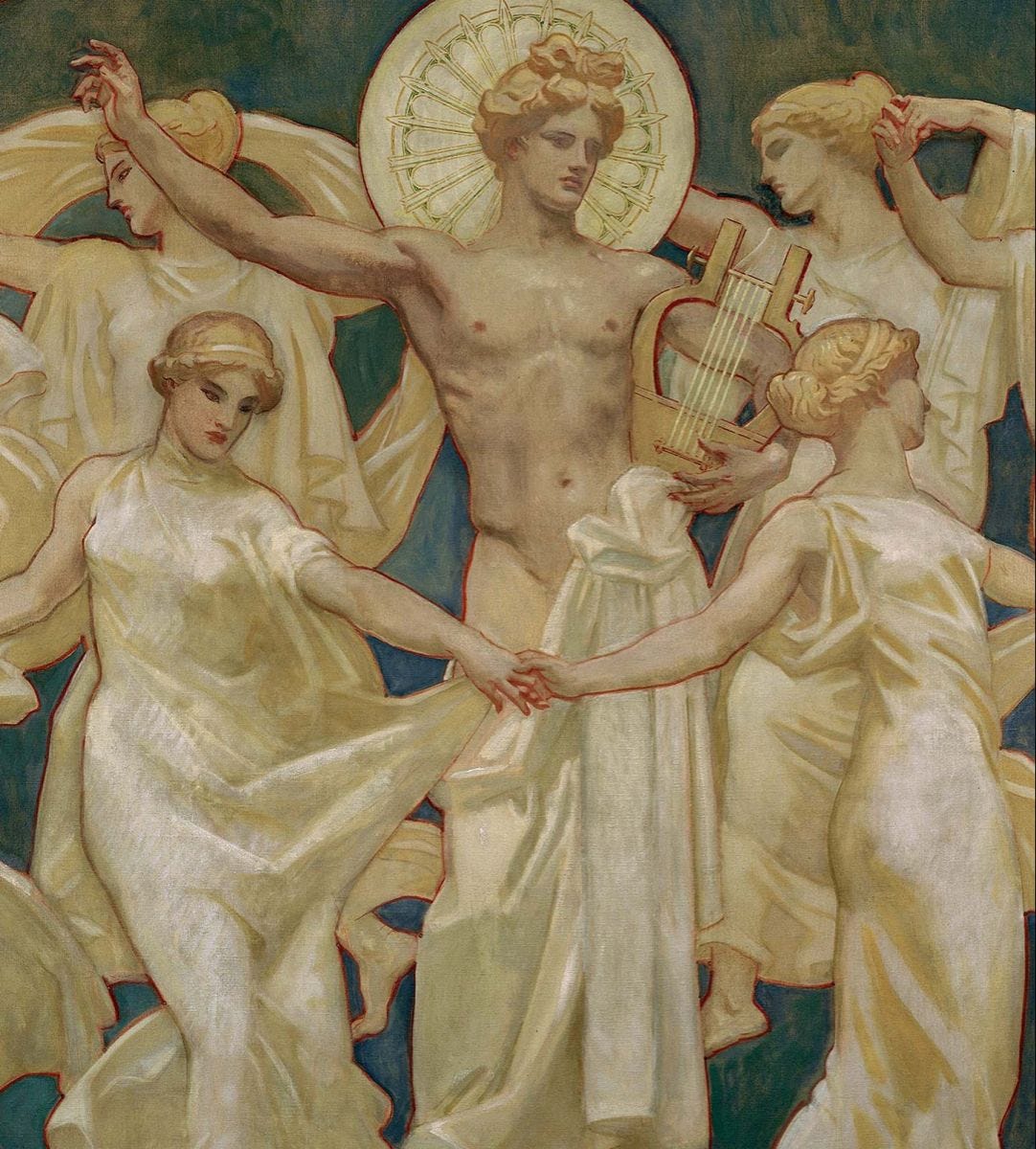

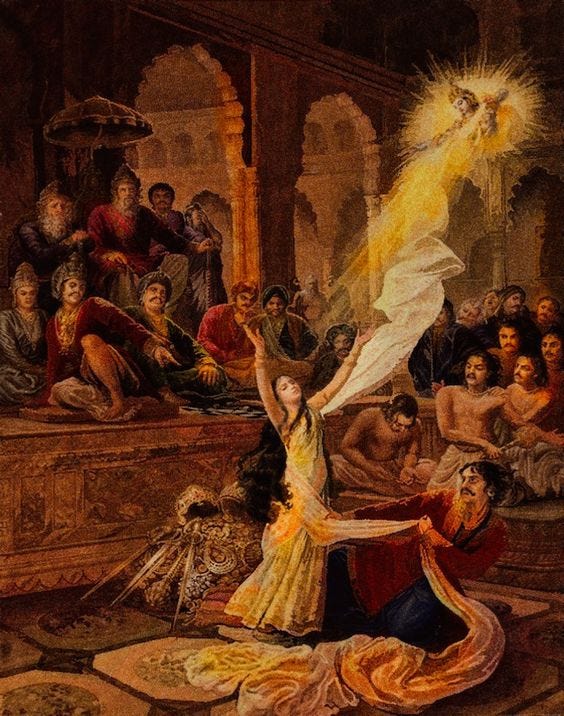



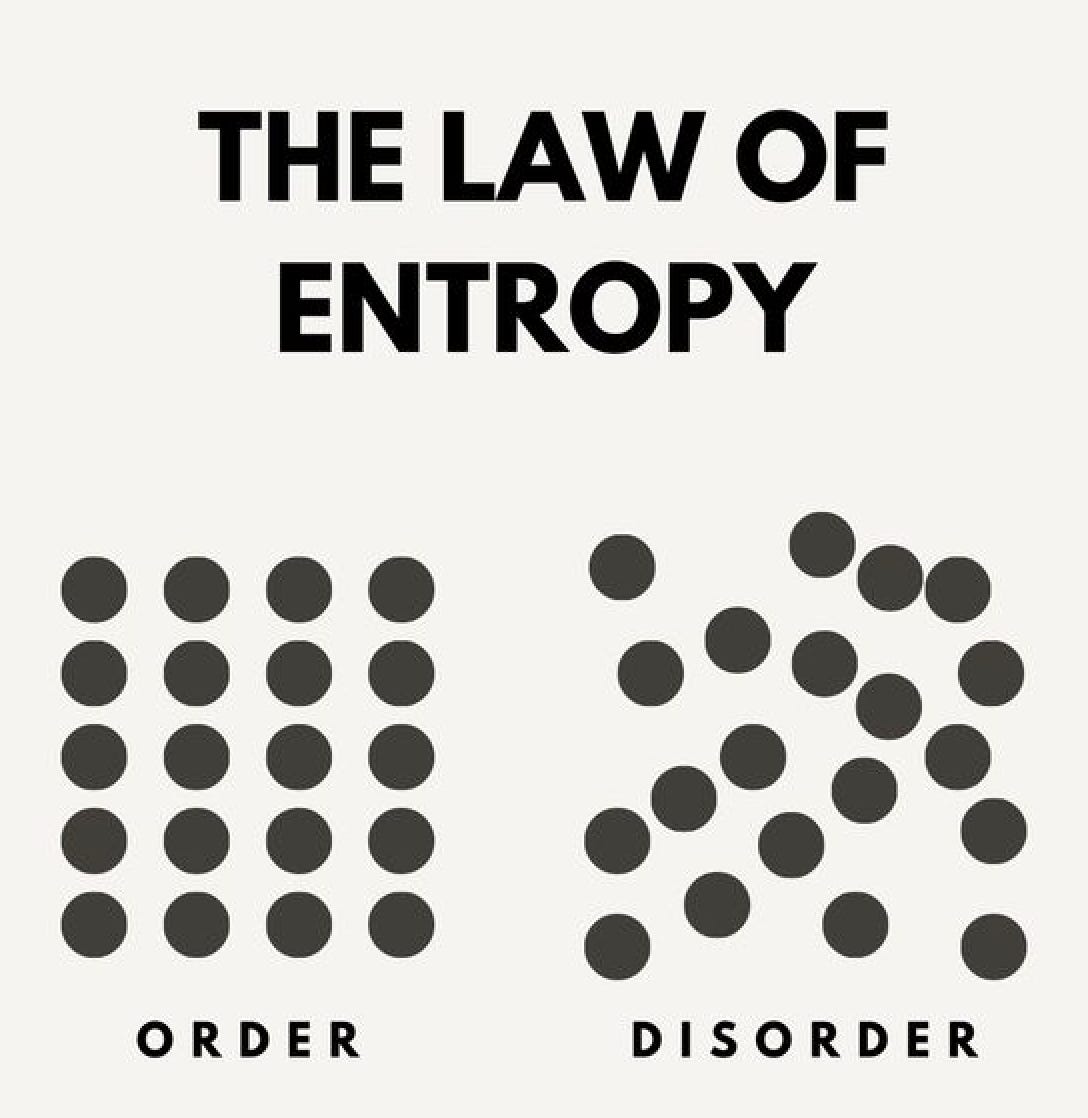
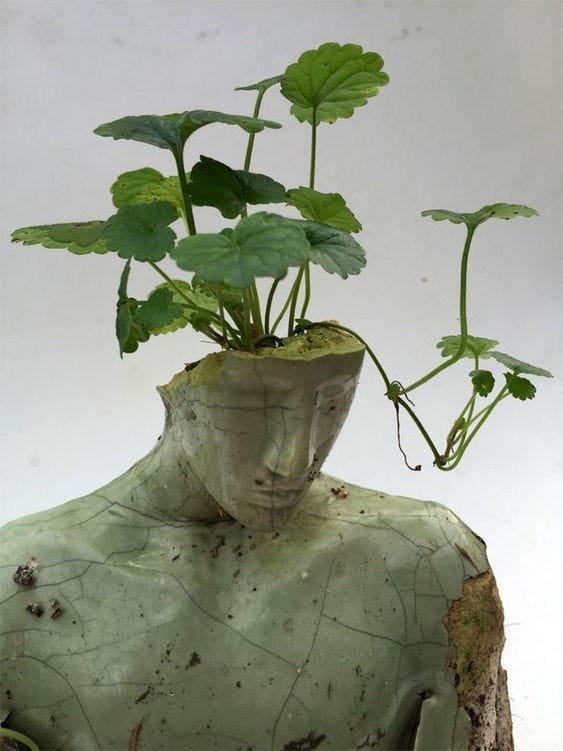
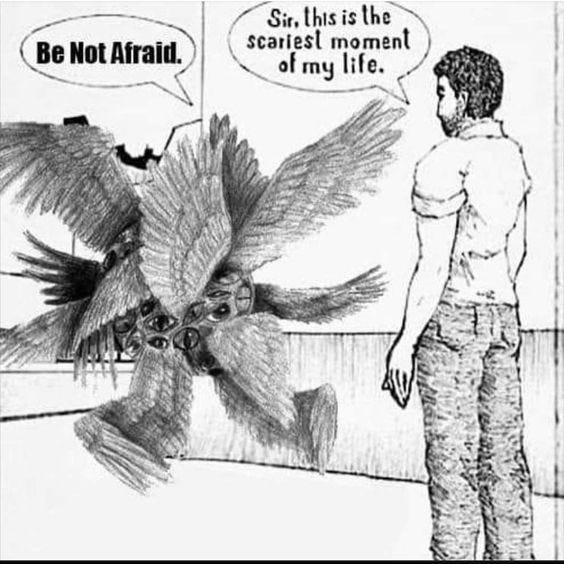
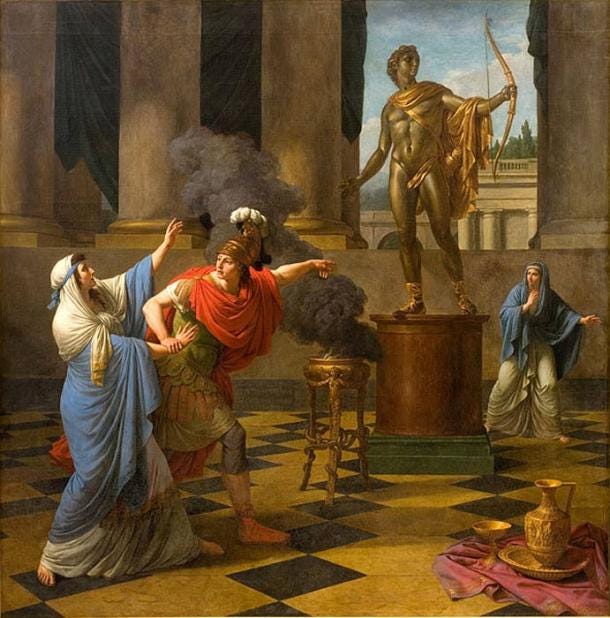
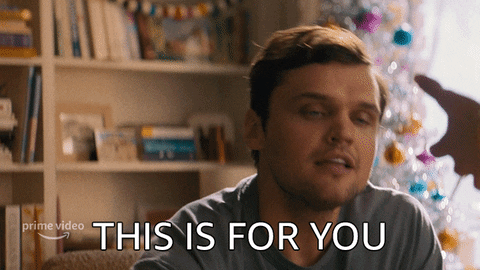

Loved this, Mollie! Makes me want to do a deep dive into the psyche myself 🩷 glad you watched "The Last Kingdom" - one of my favorite series ever....
I love your writing. The pop culture references, gifs, and art work you add make it even better. ♥️